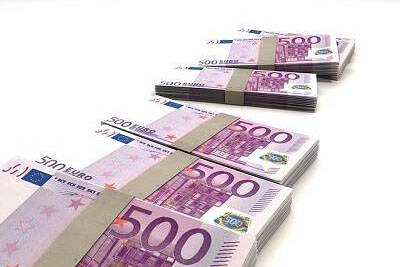New Romanian fiscal package touches upon the agri-food sector as well
The Romanian government is proposing a set of fiscal and budgetary measures aimed at reducing the high budget deficit the country is incurring (6.2% of GDP in 2022) to under 5.5%.
The fiscal package foresees new taxes, as well as the increase of some existing ones.

The main provisions of the package, based on the final form of the bill for which the Government took responsibility in Parliament, are:
- employees working in constructions and agriculture and food processing will pay (again) the CASS tax (health insurance contribution); <later editor’s note: this provision has been withdrawn at the last moment and might no longer be part of the package>
- the excise duty on alcohol and tobacco will increase;
- the VAT increases from 5% to 9% for housing, photovoltaic panels, for high quality food products (mountain, organic, and traditional products);
- VAT increases from 9% to 19% for products with high sugar content as well as non-alcohol beer;
- IT employees will pay income tax for their gross wages above RON 10,000 per month;
- 1% tax on turnover (with some corrections) for companies with a turnover larger than EUR 50 mln, if the 16% profit tax is lower;
- 2% turnover tax in 2024-2025 and 1% turnover tax starting from 2026 for banks (in addition to the profit tax);
- 0.5% tax on turnover (with some corrections) for companies “active in the oil and gas sectors” and have a turnover above EUR 50mln;
- 3% (from 1% before) tax on turnover for the microenterprises with a turnover above EUR 60,000 and for the microenterprises in certain sectors where they are used as fiscal optimization by actual employees
- A property tax of 0.3% is levied for buildings with a value above EUR 500,000 and for cars with a value of above EUR 75,000. The tax will apply on the value of the assets above the respective thresholds;
- The Government promises to levy a 70% tax on the incomes “that can not be justified” (up from 16% currently).
The Prime Minister explained that these measures are a compromise aimed at preventing the loss of European funds (in case of fiscal slippage) and “keeping the economy alive.” According to him, the fiscal package will provide more equity for “the honest employees” particularly low-income earners, as well as a larger public budget achieved thanks to higher taxation and less tax evasion to finance better public services.
The promise of fighting tax evasion and optimizing the use of public money is however challenged by business representatives. The corporate taxpayers surveyed by Ziarul Financiar and the latest feedback from Concordia employers’ organisation indicate significant side-effects such as higher prices (inflation), more incentives for tax avoidance (grey economy) and significant financial problems faced by some economic sectors resulting in overall slower economic growth (hence lower tax revenues).